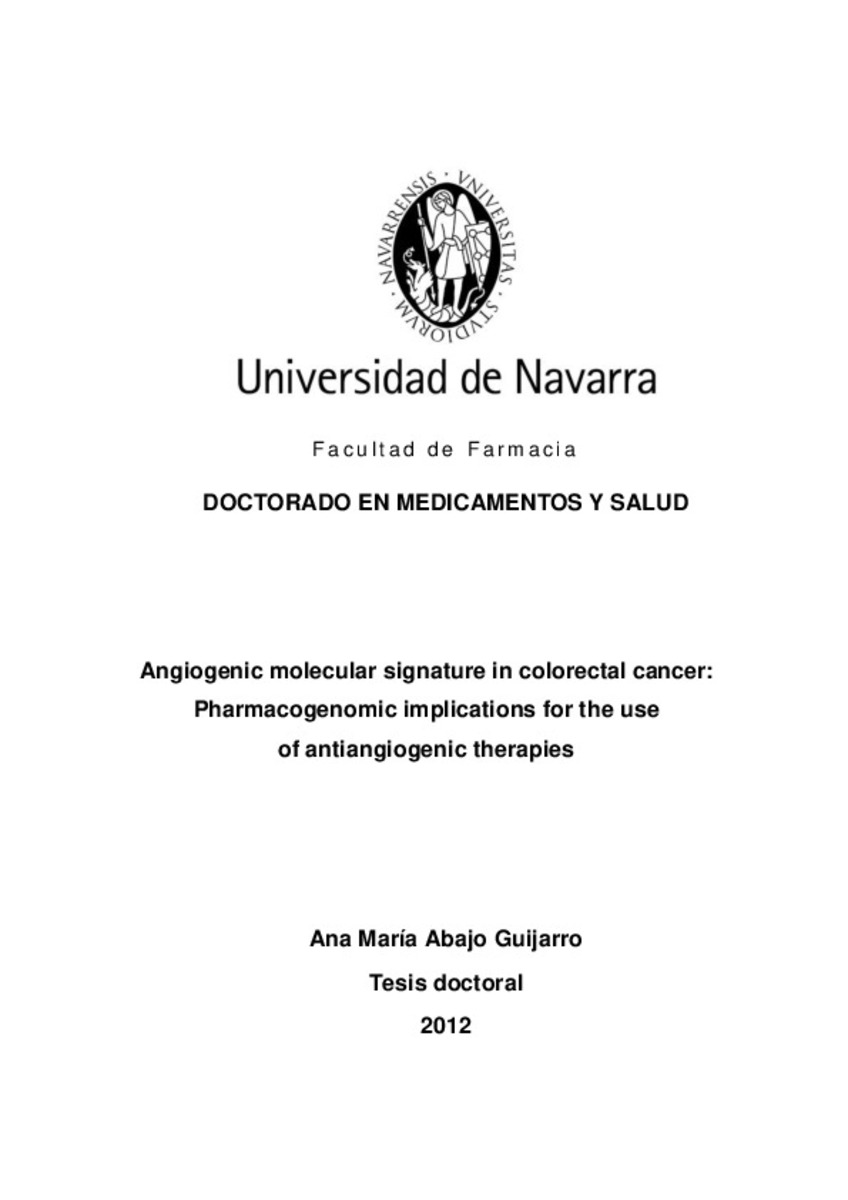Angiogenic molecular signature in colorectal cancer: Pharmacogenomic implications for the use of antiangiogenic therapies
Palabras clave :
Materias Investigacion::Farmacia
Pharmacogenomics
Angiogenesis
Biomarkers
Colorectal cancer
Fecha de publicación :
2014
Fecha de la defensa:
25-jul-2012
Editorial :
Servicio de Publicaciones de la Universidad de Navarra
Cita:
ABAJO, A. “Angiogenic molecular signature in colorectal cancer: Pharmacogenomic implications for the use of antiangiogenic therapies”. García-Foncillas, J. y Branes, E. (dirs.). Tesis doctoral. Universidad de Navarra, Pamplona, 2012
Aparece en las colecciones:
Estadísticas e impacto
0 citas en

0 citas en

Los ítems de Dadun están protegidos por copyright, con todos los derechos reservados, a menos que se indique lo contrario.







